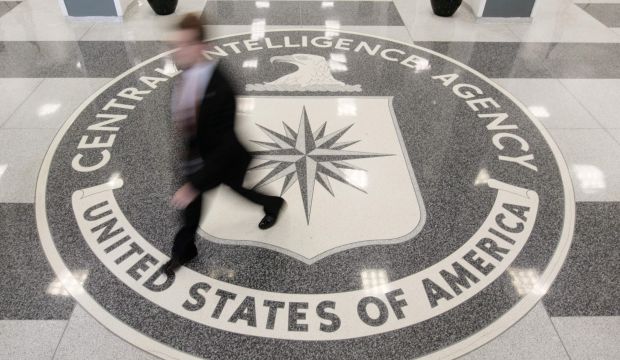
The lobby of the CIA Headquarters building in McLean, Virginia, is shown in this August 14, 2008 file photo. (REUTERS/Larry Downing)
The 500-plus page report is the product of five years of investigation by the committee into the activities of the CIA at overseas sites in the years after the September 11 attacks of 2001, and during the subsequent “War on Terror.”
In an introduction to the report, committee’s chair Senator Dianne Feinstein wrote that it was “highly critical of the CIA’s actions, and rightfully so,” as “CIA personnel, aided by two outside contractors, decided to initiate a program of indefinite secret detention and the use of brutal interrogation techniques in violation of US law, treaty obligations, and our values.”
The report, an unclassified summary of a longer, still-classified document, summarizes “abuses and countless mistakes made between late 2001 and early 2009” during the CIA’s Detention and Interrogation Program, Feinstein said, which saw the agency detain more than a hundred individuals accused on involvement in terror attacks against US targets.
“It is my personal conclusion that, under any common meaning of the term, CIA detainees were tortured,” she wrote, adding that she believed the committee’s report contained “overwhelming and incontrovertible” evidence of this.
The report also dismisses claims from CIA officials that the interrogation measures criticized in it were necessary in light of the threat posed by Al-Qaeda terrorists.
Among the 20 findings of the report, the committee concludes that the measures employed by interrogators were “brutal and far worse than the CIA represented to policymakers and others,” “rested on inaccurate claims of their effectiveness,” and were not “not an effective means of acquiring intelligence or cooperation from detainees.”
In addition to a number of failures of internal oversight, the report also concludes that CIA officials had lied to the media, “the Congress, the Department of Justice, and the White House” as part of efforts to avoid scrutiny of its activities.
The report confirms previous accounts of the mistreatment of detainees that emerged in the decade following the September 11 attacks. Among the measures used on detainees between 2001 and 2006, when the report says that the CIA’s detention program was largely suspended, were threats of sexual violence, sleep deprivation, denial of medical care and clothing, and simulated drowning—widely known as “waterboarding.” The report also details the detention of some suspects in a facility codenamed “COBALT,” described as a “dungeon” by one CIA employee, and where the report concludes “lack of heat likely contributed to the death of one detainee.”
The release of the hotly-anticipated report has proven controversial within the US, with two Republican legislators calling the decision to release it “reckless and irresponsible.”
“We are concerned that this release could endanger the lives of Americans overseas, jeopardize US relations with foreign partners, potentially incite violence, create political problems for our allies, and be used as a recruitment tool for our enemies,” senators Marco Rubio and Jim Risch said.
In preparation for the release of the report, the US ordered extra security measures at embassies and military facilities worldwide on Monday, fearing a violent backlash once the activities it details became widely-known.
Others called the release of the report a positive step, and said it would prevent a recurrence of similar activities in the future.
“We did things that we tried Japanese soldiers for war crimes for after World War Two,” Senator Angus King told CNN on Monday.
“This is not America. This is not who we are. What was done has diminished our stature and inflamed terrorists around the world,” he added.
“Did we torture people? Yes. Did it work? No,” King said.

Trackbacks/Pingbacks